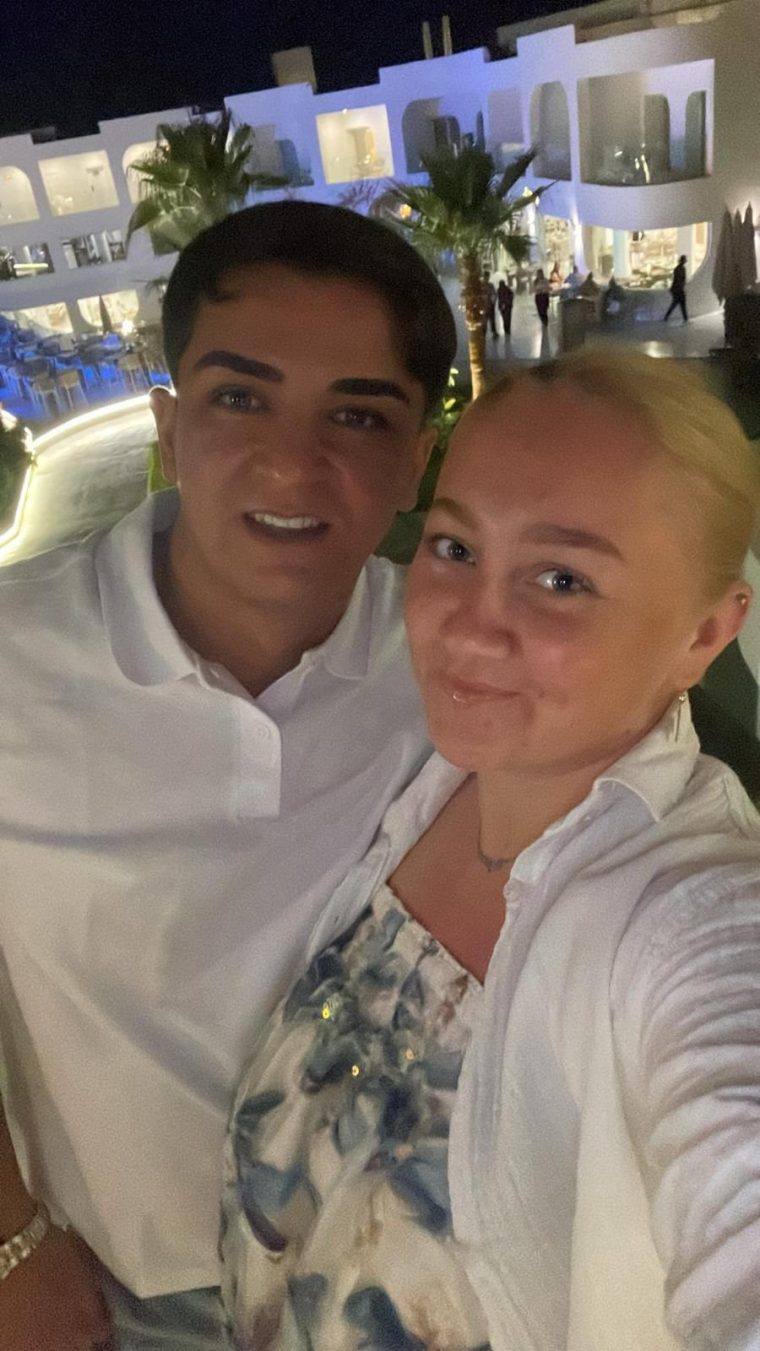Demi Kara dropped out of university to work full-time, but increased minimum income requirements mean she cannot afford a spouse visa
A British woman who dropped out of university in order to pay for her Turkish husband’s spouse visa says that despite working 70-hour weeks, she is still unable to afford it.
Demi Kara, 22, from Edinburgh, met her husband, Bayram, 24, during a family holiday in 2018 in Marmaris, in south-east Turkey, where he worked as a crew member on a yacht.
“We exchanged social media and then began talking, but it was a friendship thing for a little while before I finally decided to give things a chance,” Kara told The i Paper.
Over the next five years, Kara regularly travelled to Turkey on family trips and visits to meet her husband-to-be before the pair were finally married in October 2023.
But she said she could not meet the minimum income requirement (MIR) needed to sponsor her husband’s spouse visa, which would allow him to join her in the UK.
The previous Conservative government raised the income threshold from £18,600 to £29,000 in April 2024.

Only the sponsor’s income counts towards the minimum income threshold.
Kara said she decided to drop out of her degree in fashion, art and design at Heriot-Watt University one year early to take up full-time work so she could meet the income requirement.
“I left my part-time job in a care home and began working as an autism practitioner,” she said. “I was doing 60 to 70 hours a week and I was about £400 short of the £29,000.
“I am just trying to pick up as many hours as I possibly can. But working 70 hours a week is exhausting.
“A lot of it is 15-hour shifts. You start at 7am and don’t finish until 10pm.
“I think it’s so difficult with being so young,” she added. “You’re literally on minimum wage.”
“We always knew it was going to be difficult. It’s hard enough being apart as boyfriend and girlfriend, but it’s even harder being apart as husband and wife.
What are the minimum income requirements?
Rules stipulating that a UK citizen must earn a certain amount to bring over a foreign spouse were introduced by the coalition government in 2015 as part of a raft of changes designed to reduce net migration.
The precise number of people separated by the rule is not clear, but Oxford’s Migration Observatory suggests it could be in the tens of thousands.
Until last year, the minimum income requirement (MIR) was £18,600 a year.
In April 2024, the Conservative government raised this to £29,000 and set out plans to increase it again to around £38,700 in 2025, claiming this would reduce net migration and ensure families could support themselves without becoming a burden to the taxpayer.
The plans to increase the MIR to £38,700 were paused after Labour won the general election last year.
It commissioned a review of the MIR rules in September 2024, looking at financial requirements across family immigration routes to ensure a “clear and consistent” system.
The review, carried out by the independent Migration Advisory Committee (MAC), found that the £29,000 threshold was “high compared to other high-income countries, with those placing greater weight on family life relative to economic wellbeing”.
The MAC urged against increasing the MIR to £38,700, but offered Labour the discretion to decide “what changes are appropriate”.
Critics have argued that the MIR disproportionately hits poorer families.
Roughly half of all employees in the UK earn less than £29,000 per year, according to a parliamentary research briefing on the issue.
“Our biggest challenge is we’re missing out on things like birthdays, anniversaries, Christmas, Easter. I’m not here when it’s Ramadan for my husband.
“At this moment in time, we keep just telling ourselves it’s not forever.”
Kara also told The i Paper that she had had to recover from health difficulties, including a miscarriage earlier this year, without her husband by her side.
“That was really, really difficult,” she said. “Having to deal with that on my own is not ideal.”
She said that her husband had had two tourist visas rejected, meaning she had to travel to Turkey to visit him, incurring additional expenses to cover the costly flights.
“I try to come over every six to eight weeks, whether it’s for a weekend off work or annual leave,” she said. “I try and come over as much as I possibly can.”
A Home Office spokesperson said: “It is longstanding government policy that we do not comment on individual cases, but the Minimum Income Requirement for family visas remains an important part of maintaining a controlled, managed and fair immigration system.
“In cases where refusing a visa would cause unjustifiably harsh consequences for the applicant or their family, permission can still be granted based on exceptional circumstances.”
Caroline Coombs, the executive director and co-founder at Reunite Families UK, a charity supporting those adversely impacted by visa rules, described the MIR as a “block on young people’s future”.
She told The i Paper: “Instead of enjoying the beginning of their love, they are forced to deal with a cruel system that doesn’t include or comprehend the many ways in which people today fall in love and start relationships.
“We urge the government to do the right thing by young people and by everybody who fell in love with people who weren’t born on these shores.”
